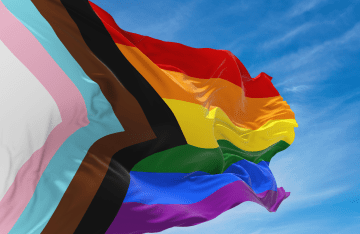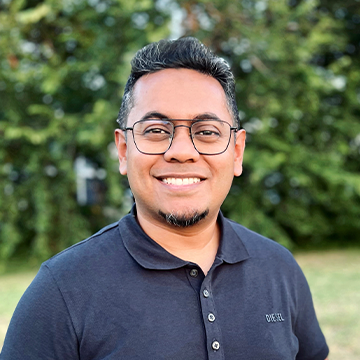
CDCS Colloquium: Mohammed Rashid
- Annenberg School, Room 300
"Queering Deshi Blogging Networks: Legal Rights, Religion, and the Politics of Blog Publics in Bangladeshi LGBTQ+ Activism"
About the Talk
LGBTQ+ media activism in Bangladesh is a comparatively less explored avenue in critical media studies and queer Asia studies. Although academic and socio-political conversations around hijra and transgender communities in Bangladesh (Hossain, 2017, 2018, 2020; Ibrahim, 2019) are more often foregrounded, scholarly discussions around gay, lesbian, and bi-sexual experiences and identities are rarely pursued. This is partly due to the networked hate and brutal treatment gay, lesbian, and bi-sexual subjects and allies experience in the Bangladeshi nation-state where both socio-cultural ideology and legislative regulation are dominated by extreme religious doctrines and colonial-time legislature that make non-normative sexual identities and cultures invalid and punishable. However, as this talk aims to establish, queer and decolonial counter-public formation around specific alternative Bangladeshi blogs and archival websites have opened new avenues for a more sustained LGBTQ+ world-making.
This talk explores queer media activism in Bangladesh, firstly, through a genealogical account of LGBTQ+ community organizing within the nation-state, along with critically analyzing how adopting a Western framework of queer activism, primarily based on visibility, coming-out strategies, and pride rallies, presented itself with extreme existential challenges for gay, lesbian, and bi-sexual individuals. Secondly, the talk is critical of the liberal narratives around progressive digital activism in Bangladeshi blogging networks (Haq, 2013) and explores how secular platforms like Somewhere in… and Sachalayatan, fail to protest queer oppression and advocate for LGBTQ+ rights. This examination observes that so-called secular blogging communities in Bangladesh is only selectively progressive, and that conservative and religious doctrines continue to undergird its discursive and affective logics. Finally, the talk analyzes Mondro (2019), an enclave digital archive and alternative blogging platform, created in response to the oppression and hate queer subjects experience in traditional blogging communities, to explore the potentials of more tactical modes of queer digital media activism in Bangladesh.
About the Speaker

Mohammed Rashid is a postdoctoral fellow at the Center on Digital Culture and Society. His research explores tactical digital media cultures of Bangladeshi and South Asian queer counter-publics, specifically focusing on practices that thrive in contexts of extreme gender and sexual marginalization through negotiating digital visibility.
Rashid studies Bangladeshi digital media cultures exploring blogging networks, social-media sites, digital archives, and emerging story-telling platforms as crucial spaces that not only marginalize non-normative sexualities, but also construct counter-publics that resist dominant heteronormative and cissexist modes of oppression. Rashid’s research employs a decolonial approach to South Asian LGBTQ+ digital media activism that is aware of the pitfalls of following Western activist frameworks of pro-visibility and requires a more nuanced and situated understanding of the risks associated with queer visibility in the South Asian context. Incorporating media ethnography, Rashid’s research investigates deeply the challenges and possibilities of LGBTQ+ resistance, queer-rights activism, and regional solidarity in South Asia and its entanglements with and through digital media.
Events
View AllDisclaimer: This event may be photographed and/or video recorded for archival, educational, and related promotional purposes. We also may share these video recordings through Annenberg's website or related platforms. Certain events may also be livestreamed. By attending or participating in this event, you are giving your consent to be photographed and/or video recorded and you are waiving any and all claims regarding the use of your image by the Annenberg School for Communication. The Annenberg School for Communication, at its discretion, may provide a copy of the photos/footage upon written request.
